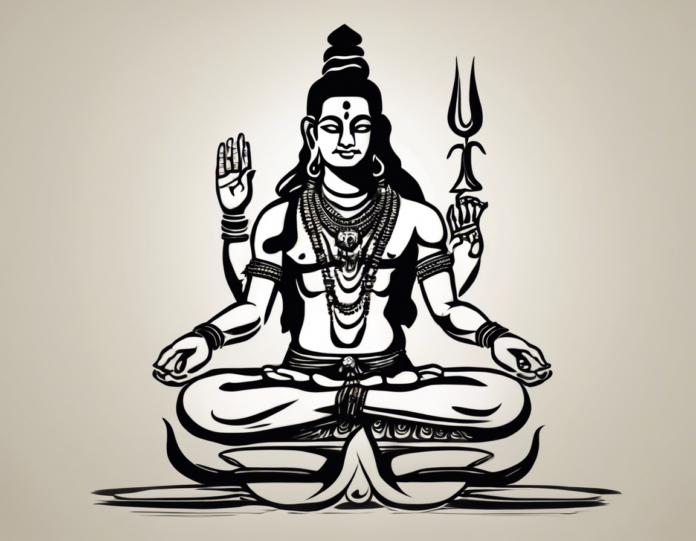Introduction
Shivratri 2023 marks the auspicious celebration of Lord Shiva in the holy month of Sawan. Observed by devotees across India, this day holds significant spiritual importance in Hindu culture. The festival, also known as Sawan Shivratri, falls on the 10th day of the month of Sawan according to the Hindu lunar calendar. This period is believed to be especially dear to Lord Shiva, making it a propitious time for his worship and seeking his blessings.
Significance of Shivratri in Sawan
Sawan Shivratri is a day that holds deep spiritual significance for Hindus, especially for devotees of Lord Shiva. It is believed that offering prayers, fasting, and observing the rituals on this day can bring prosperity, peace, and happiness in one’s life. This festival is dedicated to the worship of Lord Shiva, the supreme deity in Shaivism, one of the major branches of Hinduism.
In Hindu mythology, Lord Shiva is known as the destroyer of ignorance and the god of meditation, yoga, and arts. Devotees believe that praying to him with pure devotion and sincerity on Shivratri can help in seeking his blessings for the removal of obstacles, fulfillment of desires, and spiritual upliftment.
Celebrations of Sawan Shivratri
The celebrations of Sawan Shivratri typically involve various rituals and practices aimed at pleasing Lord Shiva. Devotees wake up early in the morning, take a ritual bath, and visit Shiva temples to offer prayers and seek his blessings. Many devotees observe a day-long fast on this occasion to show their dedication and devotion to the deity.
Key Rituals and Practices
- Abhishekam: One of the central rituals of Shivratri is offering milk, water, honey, and other sacred items on the Shiva Lingam while chanting prayers and mantras.
- Offering Bilva Leaves: Devotees offer Bilva leaves to Lord Shiva, which are considered dear to him, along with chanting the Maha Mrityunjaya Mantra.
- Night Vigil: Many devotees observe a night-long vigil on Shivratri, engaging in prayer, meditation, and singing hymns in praise of Lord Shiva.
- Fasting: Fasting on Sawan Shivratri is believed to purify the body and soul, as well as demonstrate one’s devotion to the lord.
Importance of Fasting
Fasting on Sawan Shivratri is considered a way to purify the mind and body, and also to demonstrate self-control and discipline. It is believed that abstaining from food and water helps devotees focus their energy on prayer and meditation. Fasting is also seen as a way to cleanse the body of toxins and impurities, promoting physical and spiritual well-being.
FAQs about Sawan Shivratri
1. What is the significance of Sawan Shivratri?
Sawan Shivratri holds great significance as a day dedicated to the worship of Lord Shiva. It is believed that observing the rituals on this day can bring blessings, prosperity, and spiritual growth.
2. How is Sawan Shivratri celebrated?
The festival is celebrated by offering prayers at Shiva temples, performing Abhishekam, fasting, and observing night vigils. Devotees seek Lord Shiva’s blessings for fulfillment of their wishes.
3. Why is fasting important on Sawan Shivratri?
Fasting is seen as a way to purify the body and mind, demonstrating devotion and discipline. It is believed to help devotees focus on prayer and meditation, as well as seek spiritual growth.
4. What are the key rituals of Sawan Shivratri?
The key rituals include offering Abhishekam to the Shiva Lingam, offering Bilva leaves, observing night vigil, and fasting as a way to honor and seek blessings from Lord Shiva.
5. Can anyone participate in the celebrations of Sawan Shivratri?
Yes, Sawan Shivratri is open to all devotees and believers who wish to participate in the festivities and seek the blessings of Lord Shiva. It is a day of devotion and prayer for all who worship the deity.
In conclusion, Sawan Shivratri is a sacred and significant festival that holds immense importance for devotees of Lord Shiva. The day is marked by various rituals, prayers, and offerings that seek to honor and seek blessings from the mighty deity. By observing the traditions associated with this festival, devotees aim to purify their minds and souls, seek spiritual growth, and find peace and prosperity in their lives.


Recent comments